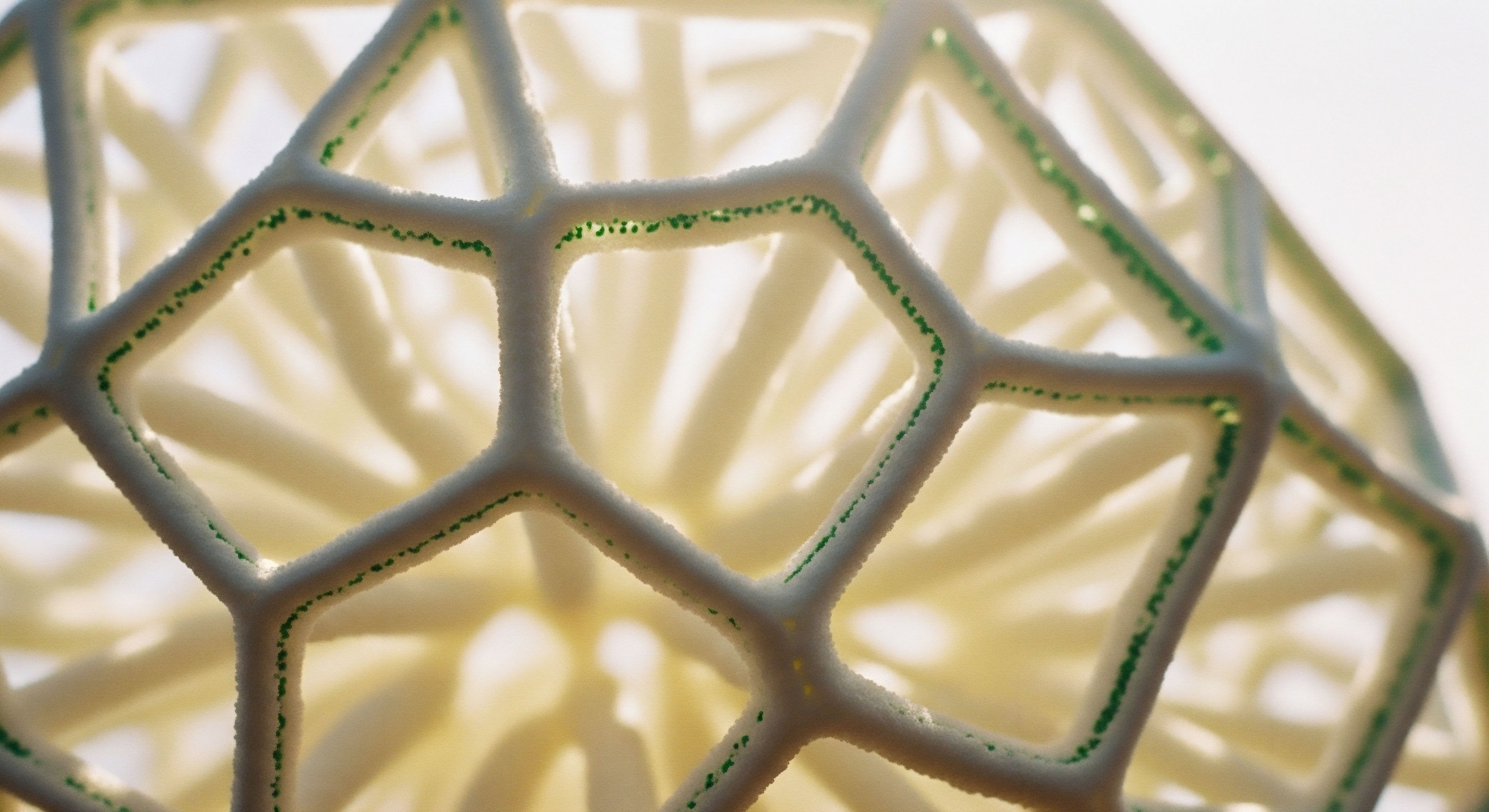

The Foundation of Unrivaled Performance
The human body operates as a sophisticated biological engine, a high-performance system demanding precise calibration and meticulous maintenance. Nightly regeneration represents the core operational cycle for this system’s restoration and enhancement. It is the fundamental process through which resilience is rebuilt, cognitive faculties are sharpened, and metabolic equilibrium is re-established. This restorative phase is an active, dynamic period of cellular repair, hormonal recalibration, and neurological consolidation that directly dictates daytime capability and long-term vigor.
Optimal nightly regeneration confers a distinct competitive edge, an “unfair advantage” in the pursuit of peak performance. Individuals who master this biological imperative unlock superior energy reserves, accelerated recovery from physical and mental stressors, and enhanced capacity for learning and adaptation. This is the bedrock upon which sustained high output is built, allowing for a level of consistent excellence that is otherwise unattainable.
Growth hormone secretion demonstrates a pronounced pulsatile pattern, with significant peaks occurring during the initial phases of deep slow-wave sleep, often exceeding daytime levels by severalfold. This anabolic surge is indispensable for tissue repair, muscle protein synthesis, and metabolic regulation.
When this fundamental regenerative process is compromised ∞ whether through inadequate sleep duration, poor sleep quality, or chronic stress ∞ the body’s ability to repair and optimize itself is severely impaired. The consequences manifest as diminished cognitive function, persistent fatigue, hormonal dysregulation, and an increased susceptibility to illness and injury. The pursuit of peak performance and well-being necessitates a profound understanding and deliberate calibration of this critical nightly cycle.
The capacity for robust nightly regeneration is a primary determinant of biological age and functional capacity. By prioritizing and enhancing this restorative period, individuals actively counteract the degenerative processes associated with aging and environmental insult. This proactive approach positions one at the vanguard of personal optimization, transforming the passive experience of aging into an active engineering of enduring health and performance.


Engineering Your Biological Reset
Achieving superior nightly regeneration is an act of deliberate biological engineering, focusing on the precise calibration of internal systems. This involves understanding and actively influencing key physiological processes that govern recovery and restoration.

Sleep Architecture and Hormonal Dynamics
The architecture of sleep ∞ the cyclical progression through Non-Rapid Eye Movement (NREM) and Rapid Eye Movement (REM) stages ∞ is fundamental. Deep NREM sleep, particularly slow-wave sleep, is the primary period for the release of anabolic hormones like Growth Hormone (GH). GH is indispensable for cellular repair, muscle protein synthesis, and metabolic regulation. REM sleep plays a significant role in cognitive processing, memory consolidation, and emotional regulation. Disruptions to these cycles directly impair the body’s repair and recalibration capabilities.
Cortisol, the body’s primary stress hormone, must be managed. Elevated cortisol levels, particularly at night, disrupt sleep architecture and inhibit the anabolic processes necessary for regeneration. Strategic stress management techniques and the alignment of light exposure with circadian rhythms help regulate cortisol, ensuring a more favorable hormonal environment for recovery.

The Role of Testosterone
Testosterone production exhibits a diurnal rhythm, with levels typically peaking in the morning. Adequate sleep is essential for maintaining healthy testosterone synthesis. Chronic sleep deprivation can lead to reduced testosterone levels, impacting energy, mood, muscle mass, and overall vigor. Ensuring sufficient, high-quality sleep is a direct intervention for supporting healthy androgenic function.

Peptide Science and Targeted Interventions
Advanced protocols involve the strategic use of specific peptides. These interventions are sophisticated tools that augment foundational health practices. For instance, Growth Hormone Secretagogues (GHSs) like Sermorelin or Ipamorelin stimulate the pituitary gland to release more GH, thereby amplifying the body’s innate regenerative capacity.

Nutritional Timing and Support
The timing and composition of nutrient intake significantly influence nocturnal metabolic processes. Avoiding heavy meals close to bedtime prevents digestive interference with sleep and hormonal signaling. Emphasis on adequate protein intake supports muscle repair, while controlled carbohydrate consumption can aid in glycogen replenishment without causing significant blood sugar spikes that disrupt sleep. Micronutrient status, particularly magnesium and zinc, also plays a supportive role in sleep quality and hormonal balance.

Circadian Alignment and Environmental Control
Synchronizing internal biological clocks with the external environment is paramount. Consistent exposure to natural light in the morning and minimizing blue light exposure in the evening signals the body’s natural sleep-wake cycle. Creating a cool, dark, and quiet sleep environment further supports the initiation and maintenance of deep sleep stages. These environmental controls act as external cues that reinforce the body’s intrinsic regenerative programming.
- Establish a consistent sleep schedule, even on weekends.
- Optimize bedroom darkness using blackout curtains and minimizing electronic light.
- Implement a pre-sleep routine that signals relaxation, such as reading or gentle stretching.
- Manage light exposure ∞ bright light in the morning, dim light in the evening.
- Consider targeted supplementation for sleep support, such as magnesium glycinate.
- Address chronic stress through mindfulness or breathwork practices.
- Evaluate nutrient intake for adequate protein and balanced macronutrients.


Mastering the Rhythms of Restoration
The effectiveness of any regenerative strategy is intrinsically linked to its temporal alignment with the body’s natural biological rhythms. Understanding the chronobiology of hormone release, cellular repair, and metabolic function allows for the precise timing of interventions, maximizing their impact and conferring a true unfair advantage.

Circadian Clocks and Hormone Pulsatility
The body operates on intricate circadian clocks that govern virtually all physiological processes, including hormone secretion. Growth Hormone (GH) release is strongly tied to the onset of deep sleep, typically occurring in the early hours of the night. Testosterone production follows a diurnal pattern, with peak levels in the morning, influenced by sleep quality and duration.
Cortisol levels naturally decrease throughout the day, reaching their lowest point around midnight before beginning to rise in preparation for waking. Adhering to a consistent sleep-wake cycle is the most fundamental strategy for aligning with these hormonal pulses.

Strategic Application of Interventions
The timing of nutrient intake, exercise, and specific therapeutic agents must respect these biological timings. For instance, intense exercise performed too close to bedtime can elevate core body temperature and sympathetic nervous system activity, hindering sleep onset and quality. Similarly, the administration of certain peptides or hormone therapies requires careful consideration of their pharmacokinetic profiles and interaction with natural hormonal cycles to achieve optimal outcomes without disrupting endogenous rhythms.
For individuals utilizing advanced protocols, understanding the half-life and signaling pathways of peptides is essential. For example, GH secretagogues are often administered in the evening or during periods of fasting to synergize with natural GH release patterns. This strategic timing amplifies the regenerative signal, creating a more potent anabolic environment.

The Importance of Sleep Consistency
Consistency in sleep duration and timing is paramount. While occasional sleep disruption is manageable, chronic irregularity desynchronizes the body’s internal clocks, leading to impaired hormonal regulation, reduced cognitive performance, and diminished physical recovery. Establishing a non-negotiable sleep schedule reinforces the body’s natural regenerative programming and maximizes the benefits derived from all other health and performance interventions.

Lifestyle Integration for Sustained Vigor
Integrating these principles into daily life requires a conscious commitment to prioritizing restoration. Sleep functions as a performance-enhancing modality. It involves actively managing light exposure, stress, and nutritional intake to support the body’s innate capacity for repair. The long-term advantage is cultivated through the consistent application of chronobiologically informed practices.

The Apex of Biological Mastery
The relentless pursuit of peak performance and enduring vigor hinges on a deep understanding of the body’s innate regenerative capacities. Nightly regeneration serves as the engine room of biological renewal, the architect of resilience, and the silent determinant of daytime prowess. By mastering the principles of sleep architecture, hormonal balance, and circadian alignment, individuals gain an undeniable “unfair advantage.”
This advantage stems from the intelligent calibration of internal biological systems, augmented by external modalities. It is the ability to harness the body’s own sophisticated mechanisms for repair and rejuvenation, transforming the fundamental act of sleep into a potent tool for self-optimization. Embracing this proactive approach to biological stewardship positions one at the forefront of human potential, enabling a life of sustained energy, sharp cognition, and unparalleled physical capability.
The commitment to nightly regeneration is a commitment to living at the highest possible expression of one’s biological blueprint. It is the ultimate strategy for those who refuse to accept limitations and instead choose to engineer their own peak state, day after day, night after night.

Glossary

nightly regeneration

cellular repair

growth hormone

nrem sleep

anabolic processes

sleep architecture

testosterone

biological clocks

light exposure




